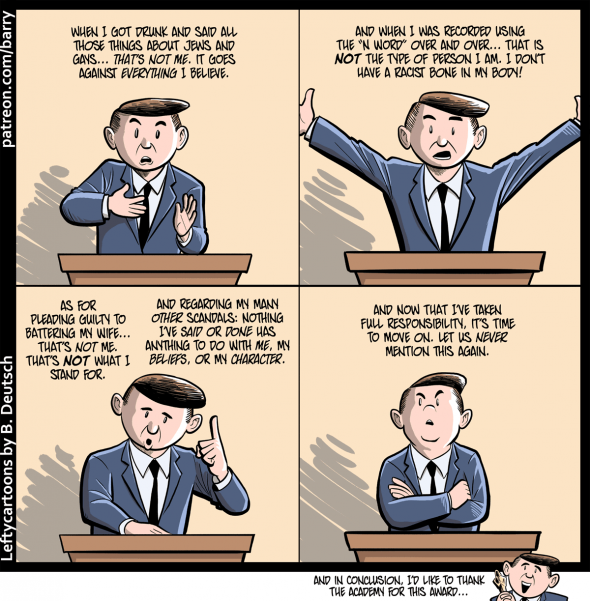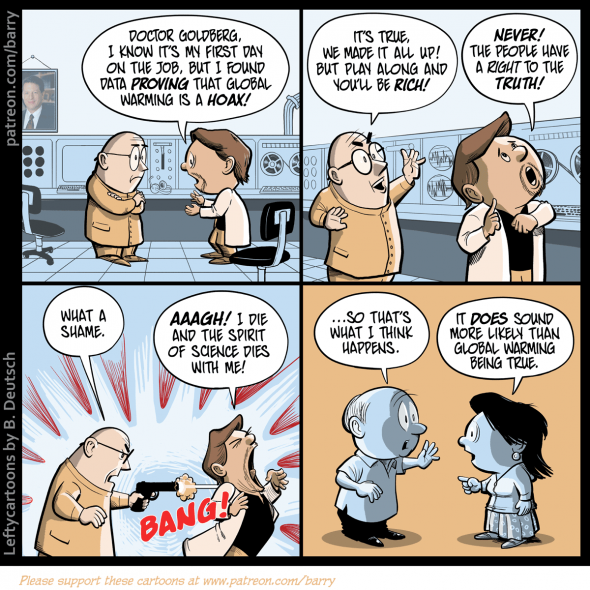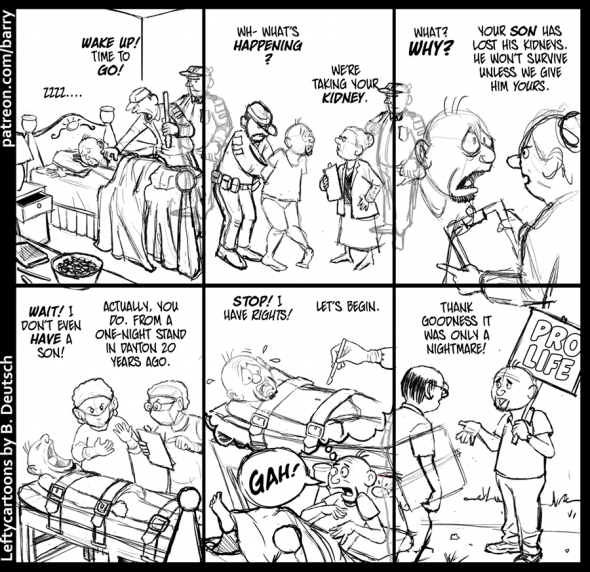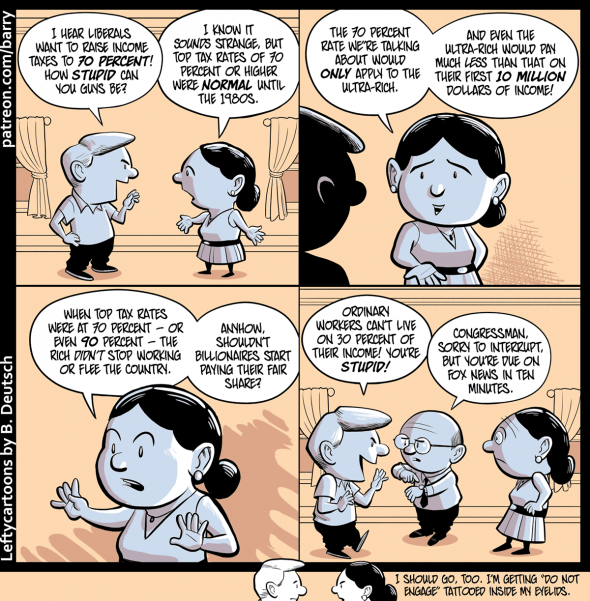If you enjoy these cartoons, please support my patreon! A $1 pledge really means a lot.
It’s pretty common to hear Americans – usually but not always conservatives – lament that life was better back then (whenever “then” was). Less common: Hearing this said by anyone who’s not white (or not male, or not straight, or not cis).
Happy memories also need to be put in context. I have interviewed many white people who have fond memories of their lives in the 1950s and early 1960s. The ones who never cross-examined those memories to get at the complexities were the ones most hostile to the civil rights and the women’s movements, which they saw as destroying the harmonious world they remembered.
But others could see that their own good experiences were in some ways dependent on unjust social arrangements, or on bad experiences for others. Some white people recognized that their happy memories of childhood included a black housekeeper who was always available to them because she couldn’t be available to her children.
So this cartoon is about white nostalgia.
When I wrote this, I was thinking of John Rawls, the philosopher who wrote “A Theory of Justice.” Rawls suggested (and I am WAY oversimplifying! My apologies, Rawls fans!) that one way to judge how just a society is, is to ask if people would choose to join that society if they stood a chance of being the least well-off member of that society. In the not so nutshelled form, this is called the veil of ignorance, and although I read Rawls in college mumble mumble years ago, it’s stuck with me ever since.
A cartoon like this could have been done about any number of marginalized peoples – women, LGBT, disabled people, Latinx, and many more. I played around with different wording (“when you get there, you’ll be a disabled lesbian of color,” etc) to be more inclusive, but as is often the case, piling more details on a short cartoon seemed, to me, to make the cartoon hit less hard.
Diversity is important to me, but diversity for me, as a cartoonist, may be best achieved by trying to do a variety of subjects over multiple cartoons.
I went through a variety of wishing props when thinking of this cartoon. I rejected doing a genie because it’s hard to do a recognizable genie in just two panels without relying on racial stereotypes. I thought of doing a wishing fish, a reference to my third graphic novel. I thought of using the magic wish-granting fairy from an earlier cartoon.
But in the end, I liked the idea of a magic wishing ball, because it’s just so out of nowhere. Plus it let me do the open “magic ball” box in the background, and I like imagining this dude just ordered his magic ball from Amazon.
Transcript of Cartoon
This cartoon has four panels, and is colored in various tones of sepia.
Panel 1
A man stands alone in a room, holding out a shiny ball in one hand. He is speaking to the ball. Nearby, an open box with “Magic Ball” written on it lies open on the floor. The man is looking a little anxious, and is dressed in a slightly old-fashioned style, with a bow tie and a vest with thin vertical stripes.
MAN: Oh, magic ball… I wish I lived in the old days. Society was better then. Life was better.
MAGIC BALL: I, the Magic Ball, will grant your wish!
Panel 2
The man continues speaking to the magic ball, now with an overjoyed expression.
MAN: Wow, it works! Thank you, magic ball! It’s been my lifelong dream to live back when everything was civilized!
MAGIC BALL: I’ll send you to any century you wish! But choose carefully, because when you get there, you’ll be Black.
Panel 3
Still holding the ball, the man looks up as he concentrates, his brow knitted.
MAN: In that case, I’ll go to… Please send me to… To…
Panel 4
Dejected, the man walks away, tossing the ball away over one shoulder.












Also, to alleviate any concerns that ICE won't arrest women and/or (probably) white people...https://www.theguardian.com/us-news/2025/jul/06/trump-voting-family-canadian-mother-detained-immigration-status